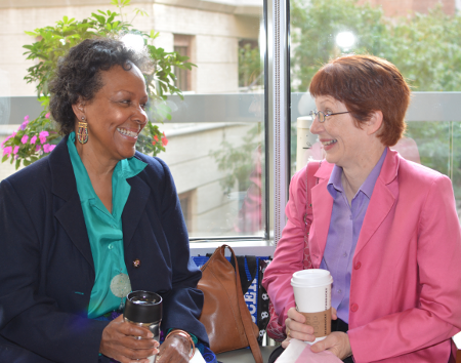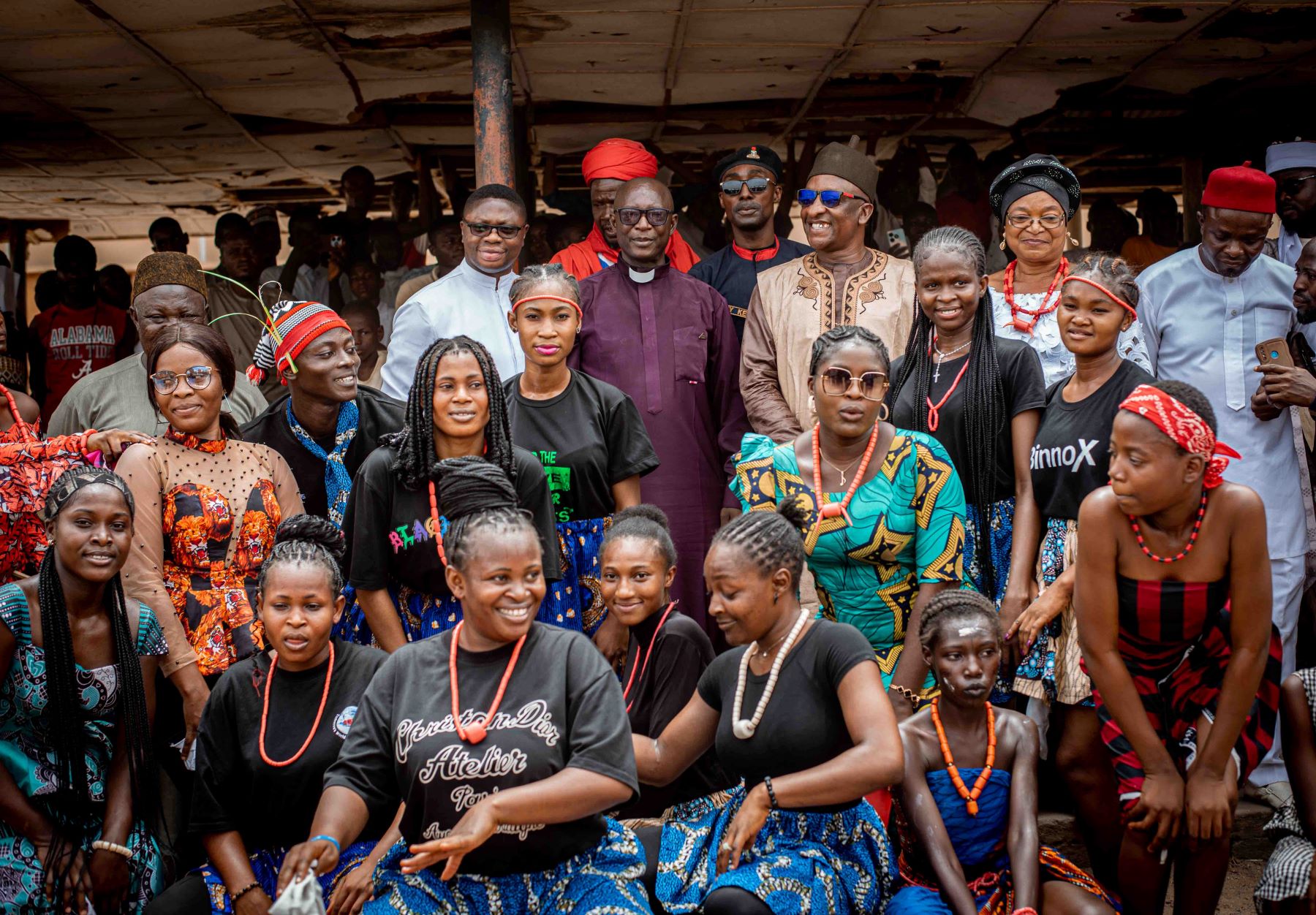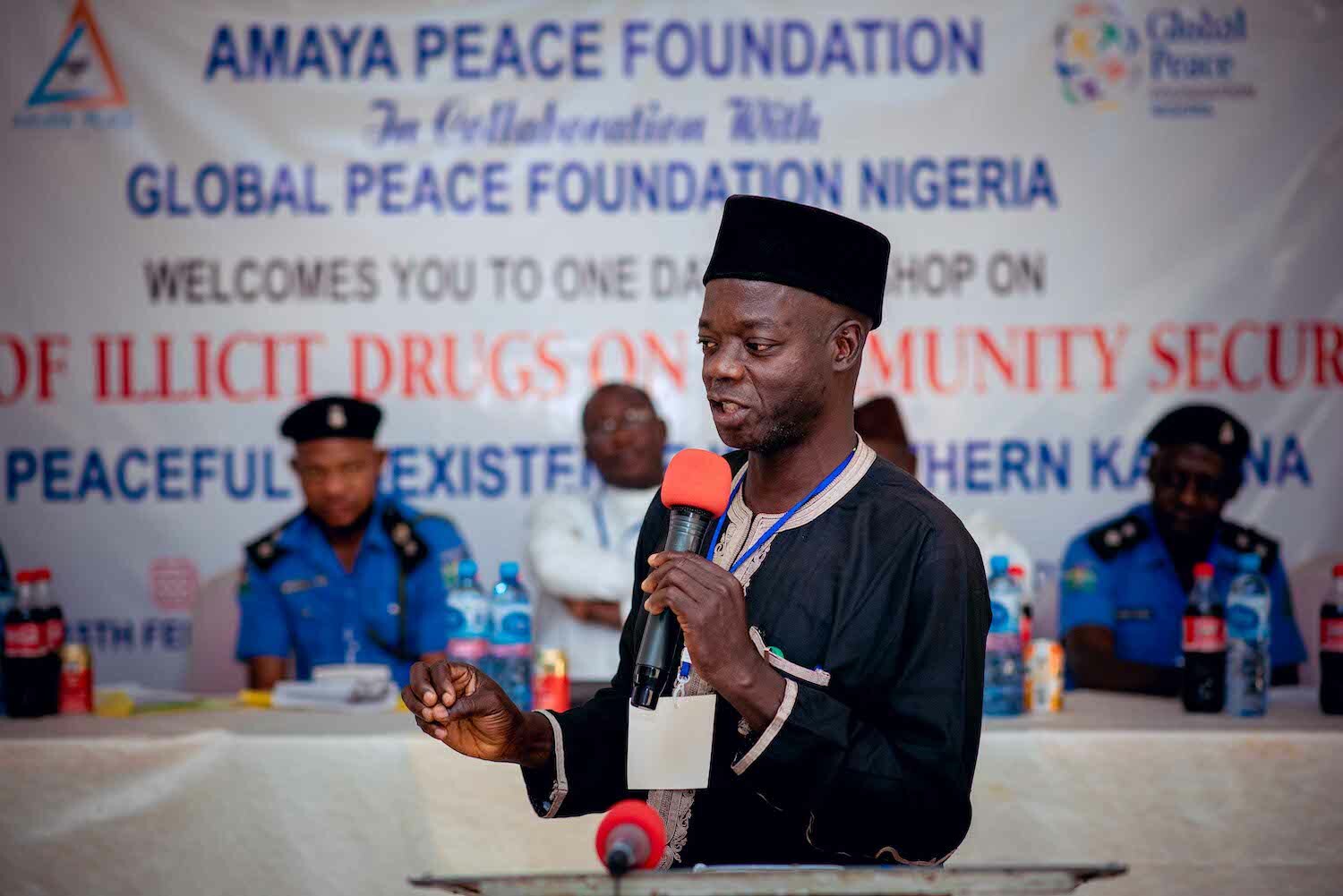I was fortunate to interview Eldridge Washington, a young social entrepreneur from Atlanta, Georgia, after the recent Global Peace Leadership Conference that was held in Washington D.C. in mid-September. The conference gathered faith leaders and community leaders from all walks of life to address the theme “America at a Crossroads: Leading Our Nation to Live up to Its Founding Ideals.”
Eldridge Washington is founder of MADE (Motivated Adults Developing Excellence), a mentoring program for middle and high school students that provides opportunities for the youth of his community to develop career skills and leadership. MADE pools together community resources to connect middle and high school students with positive role models who strive for academic excellence, physical well-being, and most of all values that ensure future success. When I asked what inspired him to create MADE, he said he did it for the community. He saw a need for strong mentors, the kind of mentor “that he wished he had, but never got.”
In our conversation, Eldridge mentioned that he was inspired by Robert Woodson, founder of the National Center for Community Enterprise and civil rights activist who gave the conference’s final call to action. I can see why.
Eldridge’s work in his community and Woodson’s work that centers on empowering people who he identifies as “neighborhood entrepreneurs” are about rebuilding enduring family relationships that transform individual lives and eventually communities.
Eldridge’s work in his community and Woodson’s work that centers on empowering people who he identifies as “neighborhood entrepreneurs” are about rebuilding enduring family relationships that transform individual lives and eventually communities.
In his closing address, Mr. Woodson recounted the story of one of the neighborhood entrepreneurs that he works with, Sister Falaka, founder of House UMOJA and organizer of the first gang summit to reduce gang violence in Philadelphia, formerly the gang capitol of the United States. Her approach was simple. She took in 15 gang members and gave them a home: a safe place to sleep, food to eat, and love. Soon other gang members came knocking at her door. In this extended family Sister Falka not only provided the young men’s basic needs, she worked with them to develop strategies to deal with conflict and manage their anger. She also helped them build family traditions that expressed spiritual principles to guide them through challenges. She later articulated these elements in the principles of “UMOJA”
Eldredge’s approach to community building is similar. In his interview he expressed that families and neighborhoods are where the work begins. He said, “Educators, pastors, community program directors, must do whatever it takes to build such relationships by just opening their doors.”
Both Woodson’s example of Sister Falka and Eldridge’s work point to something important, the central role and relevance of families in raising strong and healthy individuals as well as addressing social issues like youth violence, drugs, and education.
“Educators, pastors, community program directors, must do whatever it takes to build such relationships by just opening their doors.” ~Eldrredge Washington
Whether is comes in a home or mentorship, these relationships resemble familial connection between brothers, sisters, uncles, aunts, fathers, mothers, grandfathers and grandmothers. They create a supportive environment that provide not only tangible needs, but often overlooked but essential intangible needs like love, compassion, pride and hope.
These family connections also open up opportunities for education and leadership. Eldridge zoomed in on the “environment where development is encouraged” and educational opportunities. For Eldridge, education is essential because most people are unaware of the possibilities available to them.
Family is also an essential element of the Global Peace Foundation (GPF) approach. The Global Peace Foundation brings the family to a global scale with the vision of “One Family Under God.” GPF conference, forums, service projects and community-driven development initiatives not only seek to generate research, policy and development, they aim for a quieter, very grassroots outcome in the form of relationships.

Two women participants of the Global Peace Leadership Conference building connections.
During international service projects, overseas volunteers and local community members forge unforgettable connections to each other as they serve a common good. Conferences cultivate connections between leaders from around the world who gather under a shared vision of “One Family under God” to seek solutions to identity-based conflict, regional peacebuilding, education reform, women and youth empowerment, and development.
Eldridge expressed that one of the greatest things about GPF and why he his partnership with GPF is the culturally diverse environment without boundaries that is created within the context that “we are all One Family under God”. Eldridge also mentioned the great group of personal mentors such as Dr. Paul Murray, co-chair of the Coalition for American Renewal that he has gained.
Eldridge also noted that GPF incorporates spiritual principles and values into the program. As a whole, conference participants brought their personal faith into the conference experience.
When I asked Eldridge about what distinguishes GPF and the GPLC from other interfaith conferences, he said, “To be honest, there aren’t very many really strong interfaith conferences out there.” He mentioned that there are many conferences that are faith-based, they often centered on a particular religion. Global Peace Foundation, he said, brings together leaders of all faiths and encourages a deep “respect for the difference of faiths” while focusing on common goals, principles and values. This is what he observed makes events like the Global Peace Leadership Conference memorable.
For Eldridge, the next challenge is to move from discussion to practical application and implementation. He hopes that the strengthened relationships will also derive “To-do lists and action plans.”
M.I.C. is a blogger for the Global Peace Foundation.
WATCH Mr. Woodson’s call to action at the Global Peace Leadership Conference 2013, Arlington, VA.



